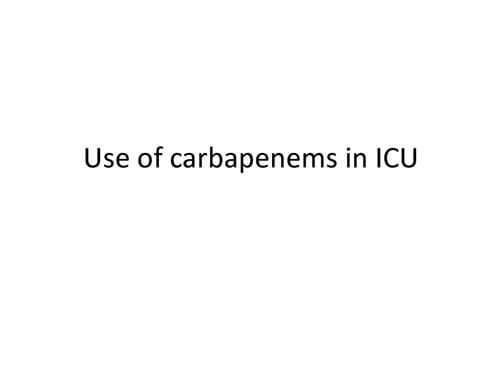SCCM 2025: Optimizing Sepsis Time Zero Definitions Based on Associations of Time-to-Antibiotics with Mortality
Introduction
The CMS SEP-1 sepsis definition includes various organ dysfunction criteria, but not all may require urgent antibiotic administration. This study assessed which criteria indicate a mortality benefit from immediate antibiotics to refine time zero definitions and quality metrics.
Method
A retrospective analysis was conducted on all adults admitted to 145 hospitals with suspected infection, defined as receiving intravenous antibiotics and blood cultures within 24 hours of arrival, between September 2018 and December 2023. The association between time-to-antibiotics (1-3 vs. 0-1 hours and 3-6 vs. 0-3 hours) and in-hospital mortality was evaluated, with time zero definitions based on the onset of each SEP-1 organ dysfunction. These included hypotension (SBP <90 or MAP <65 mmHg), lactate levels (≥4.0 or 2-4 mmol/L), respiratory failure (requiring non-invasive or invasive ventilation), and laboratory markers such as creatinine ≥2.0 mg/dL, bilirubin ≥2.0 mg/dL, platelets <100,000/µL, or INR >1.5/PTT >60 seconds. Baseline and time-varying confounders were adjusted using inverse probability weighting.
Results
- Study Population: 2.3M suspected infection cases; 640,117 met ≥1 organ dysfunction criteria.
- Antibiotic Timing: Administered within 0-6h of time zero.
- Organ Dysfunction Rates: Ranged from 6.6% (low platelets) to 40.2% (lactate 2-4).
- Crude Mortality: 5.9% (lactate 2-4) to 21.4% (respiratory failure).
- Mortality Risk: Higher with 1-3h vs 0-1h delays for hypotension (RR 1.07) and lactate ≥4 (RR 1.10).
- Additional Risk: Delays of 3-6h vs 0-3h increased mortality for lactate 2-4, respiratory failure, and elevated INR/PTT.
Conclusion
Among over 640,000 patients with suspected sepsis, delayed antibiotic administration beyond 1 hour was associated with increased mortality for those with hypotension or lactate ≥4 mmol/L. Delays exceeding 3 hours further elevated risk for patients with respiratory failure, coagulopathy, or lactate >2 mmol/L. Refining sepsis time zero definitions to prioritize these organ dysfunctions could improve patient targeting, streamline measurement, and reduce unnecessary urgency in less severe cases.
Critical Care Congress 2025, 23rd February - 25th February, 2025, Orlando, FL, USA




